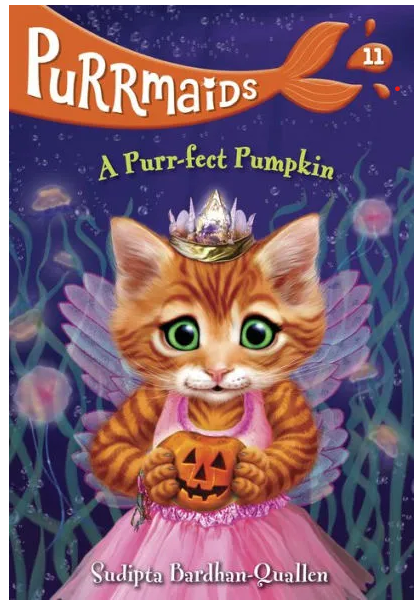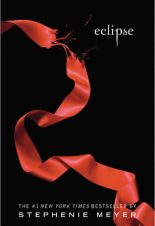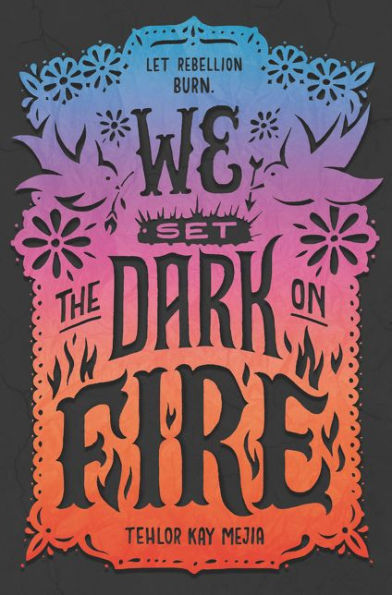
Buy This Book
Other books by Tehlor Kay Mejia
“Marriage was a business transaction. Wives were bought and paid for. Even if the bearded Sun God had ever condoned two women in love, or two men, it simply wasn’t good for business,” Dani. –We Set the Dark on Fire
We Set the Dark on Fire
by Tehlor Kay Mejia
AR Test, Diverse Characters, LGBTQ
6.1
Score
14+
384
We Set the Dark on Fire takes place on the fictional island of Medio, where a wall separates the poverty-stricken coast and the wealthy inland. Medio has rich mythology about a complicated love triangle between the Sun God, the Moon Goddess, and a human woman. The myth ends with the three entities marrying each other in a holy trifecta. Because of this myth, wealthy inland families customarily marry their sons off to two wives: a “Primera” and a “Segunda.” The Primera functions as a “political” wife who manages her husband’s social appearances and accompanies him at public functions. The Segunda is the mistress who is responsible for bearing and raising the husband’s children.
The story centers around Dani, a seventeen-year-old girl who is graduating from finishing school and is about to start her life as a wife. Despite graduating at the top of her class, Dani is worried about taking her place in the household. Political riots have made the police paranoid, and she is worried that the increased security will reveal that her identification papers are forged. Her parents are from the coast and have risked everything to put her in finishing school.
Dani is soon married off to a powerful political figure in one of the richest families in the Capital. She is the Primera and her school rival, Carmen, is the Segunda. She has little time to settle into household life before being approached by a rebel spy group, La Voz. The spies give her fresh papers so that she can pass a checkpoint, but in return, Dani is dragged into a world of political tensions and intrigue. Soon, she finds herself steeped too deep in her husband’s family’s corruption and is forced to confront ugly truths about the family she has married into. While dealing with espionage and lies, Dani must use all her wits to conceal her own secrets, which include her forged identity, her alliance with La Voz, and a budding romance with Carmen.
We Set the Dark on Fire is an original, well-written story. Mejia navigates a complicated political plot deftly. The story’s twists and turns may become confusing at times, but the narration avoids losing its thread. The prose is poetic and brings Dani’s character to life. The reader will soon be invested in the world of Medio’s aristocratic gender politics where Primeras are expected to show no emotion. Dani, who has been training for years to assume the role of Primera, is well-accustomed to showing no emotion. The layers of composure beneath that she hides add texture and detail to the narrative. She is excellently characterized.
The emotional core of the novel is formed from two main elements. The first is Dani’s relationship—and eventual romance—with Carmen. The tension and forbidden love between the two wives is excellently written, and readers will root for the couple as the stakes get higher and the lies get thicker. The second element is Dani’s love for her hometown. Although she was sent away to school at age twelve and never returned, Dani has a strong love for Polvo, the simple town where she spent her childhood. Upon entering the aristocracy, Dani discovers that she is disgusted by the excess and wealth that her new family can afford. Although she looks back fondly on her time in Polvo and wishes she could live there, she knows that Polvo is racked with poverty and that the police terrorize its citizens.
American readers may notice that the world of Medio draws certain parallels to events on the news. The island is divided by a wall meant to keep certain people out; the police are brutal towards the poor; the culture features Spanish words and foods. The narrative never makes the allegory overly obvious, but the book is deeply political. In one scene, Dani feels regret that she can have fun at all when so many people are suffering. Her guilt and class consciousness will strike a chord with many readers. While the book puts strong moral themes into conflict, the reader likely will not feel patronized or preached to; rather, they will simply want to know what happens next.
Sexual Content
- Dani and Carmen’s new husband frequently looks at Carmen in suggestive ways, “raking his eyes over her body in a greedy way.”
- Carmen wears revealing clothing. “Carmen was never underdressed—unless you counted too much bare skin. Today’s dress was plunging.”
- A seamstress measures Dani and Carmen for new clothes, and Dani is nervous about undressing in front of another person. There are moments of uncomfortable sexual tension. “Carmen in clothes was ridiculous, but in nothing but her underwear she was, objectively, a work of art. She was all circles and curves, all dark amber and soft edges.”
- In a lie to cover up her communication with La Voz, Dani tells Carmen that she fired a gardener. Dani says, “I heard him talking about you. About your figure in your dress and how he’d like to . . . well, you get the point . . . I let him go for saying inappropriate things.”
- In the shower, Dani fantasizes about Carmen. “There was a heat building deep within her. Deeper than her muscles or her bones or her pounding pulse. It was a primal, secret ache that she’d never allowed herself to feel before this moment. Her fingers knew where to find the source of that feeling, and when they went wandering, Dani didn’t stop them. . . In only a few moments, she was lost to the sensations.”
- After being attracted to each other for a long time, Dani and Carmen finally kiss. “Their lips met like swords sometimes do, clashing and impatient and bent on destruction, and Dani thought her heart might burst if she didn’t stop, but it would surely burst if she did.”
- Dani and Carmen’s husband are accused by his parents of having an affair. “If you’re going to have an affair, at least be discreet, for Sun’s sake. The years between marriage and moving your Segunda into your room are long, but . . .”
- Dani and Carmen’s husband kisses Carmen “longer than he should have been allowed, especially when they weren’t alone.” Dani imagines “the places a kiss like this could lead. The places they would necessarily lead, if Dani was still here when it was time for them to produce a child. But would Mateo really wait that long?”
- Dani and Carmen spend an intimate night together, and Dani is nervous about what Carmen expects. “She was a Segunda, of course; maybe kissing wasn’t enough. Dani tried not to balk at the thought of clothing coming off, of touching someone else the way she’d barely touched herself . . . she wasn’t ready. Not yet.” Carmen reassures her that she doesn’t expect anything sexual. “Don’t worry about that, okay? If we want to . . . when we’re ready . . . we’ll talk about it. But for now, I just want to do this until I get dizzy.” The narration skips over the rest of the night but implies that they continue making out until morning.
- After their night together, Dani observes herself in the mirror. “She didn’t look like a Primera anymore. She looked like a girl who knew the taste of lips and tongues. A girl who had wondered what was next.”
- Dani spies on two minor characters, José and Mama Garcia. “Whatever José had been about to say, it was swallowed by Mama Garcia as she claimed his mouth in a passionate kiss. One that clearly wasn’t a first between the two.”
Violence
- The police use firearms and deadly force. During one chapter, Dani and Carmen have to navigate through a market where a confrontation is taking place between the police and La Voz. The police fire several times and create havoc, but the “long, shallow scratches on her neck were the least of Dani’s worries. There had been blood on the pavement as they’d left the marketplace…” Later, she learns that her main contact within La Voz was shot. “‘Just a scratch,’ he said, but a complicated web of bandages spread across his chest and down his left arm, telling a more sinister story.”
- Members of La Voz gather in the market with torches to burn it down. Dani barely escapes in time and suffers severe burns. “The figure watched, mask expressionless, as she rolled on the stone stage, trying desperately to put out the fire that had taken over her every thought and feeling. When the flames finally died, the fabric of her expensive dress had become one with her skin, and when she tugged at it her vision went black in spots, coming back slowly to reveal an inferno where she had just been standing.”
- A member of La Voz holds a knife to Dani’s throat and threatens her life. “The knife pressed harder against her throat, kissing her skin until it broke.”
- Dani is pulled away from a car that explodes with people inside of it. “Carmen slammed into her from behind, knocking the wind out of her. She didn’t say a word as she scooped Dani up into her arms and flat-out ran back to the car. The whining was deafening now. Above them, the air seemed to grow thinner, the stars too bright. Carmen threw her painfully to the ground behind the hired car, barely covering Dani’s ears with her hands before the darkness exploded all around them.”
- A member of La Voz holds a gun to Dani’s head, but then empties her clip into a burning car instead of shooting her.
Drugs and Alcohol
- Playing cards only come out “when the men at a party got too deep in their expensive liquor and one of them had something to prove.”
- Dani recalls her school roommate “dizzy with drink from the Segundas’ legendary last-night party. She’d been loose and smiling, drunk on her own triumph as much as the rose wine.”
- The women of the aristocracy frequently drink sangria together, though never to the point of impropriety.
- When Dani’s husband catches her in his private study, he has her sit down and drink “a clear liquid that smelled like an open flame.” He is already drunk and slurring his words. Dani gets a “pleasant buzz” and stumbles a little while leaving.
Language
- Occasionally, characters will swear on the Sun and Moon gods and say, “For Sun’s Sake.”
Supernatural
- Dani recalls her mother’s proficiency in telling fortunes with a deck of cards. “Her mama told the women of the town of small illnesses that were coming: a jealous eye on a child; a husband growing too fond of the fermented pineapple rind most families brewed in the dirt patches beside their houses.”
Spiritual Content
- Dani views the world through her own religion, which differs from the religion of the inner island. While the inner island focuses on “large gods,” such as the Sun God and Moon Goddess, Dani sees small gods everywhere.
- For example, during a tense moment, “Dani closed her eyes and muttered a half-forgotten prayer to the god in the air, to the goddess in the flames. Keep calm, she beseeched them. No one around her would understand. Her parents’ gods weren’t in fashion—only the bearded visage of the Sun God, who ruled masculine ambitions and financial prosperity.”
- These invocations of small, unnamed gods appear throughout the narration and often serve to illustrate what Dani is thinking or feeling.
by Caroline Galdi
Other books by Tehlor Kay Mejia
“Marriage was a business transaction. Wives were bought and paid for. Even if the bearded Sun God had ever condoned two women in love, or two men, it simply wasn’t good for business,” Dani. –We Set the Dark on Fire
Latest Reviews

Hot Rod Hamster and the Haunted Halloween Party

The Red Pyramid

The 13th Floor: A Ghost Story

The Halloween Goblin

The Pug Who Wanted to Be a Pumpkin

The Very Best Pumpkin

Bruiser
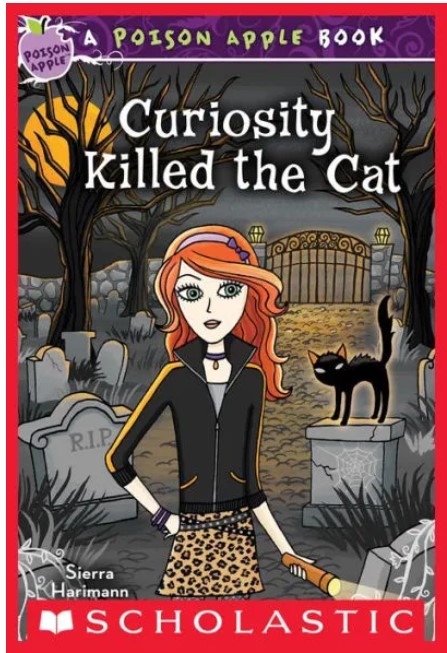
Curiosity Killed the Cat
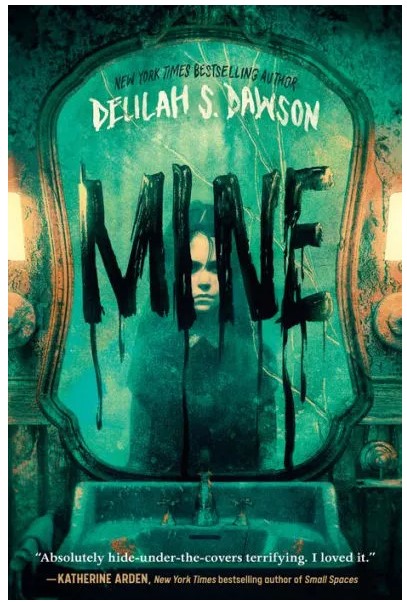
Mine
